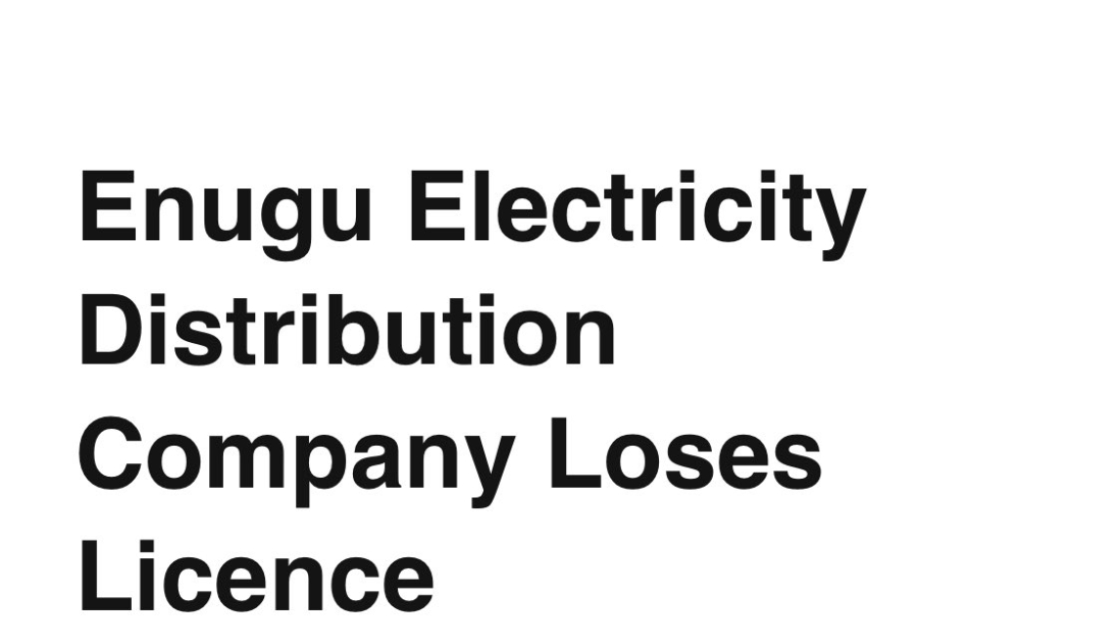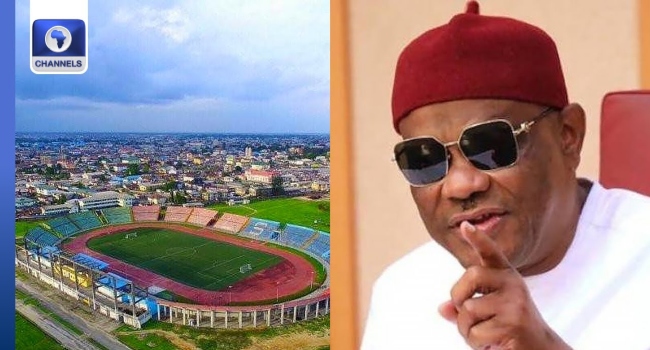
By Pascal Ibe
X users on Wednesday morning commended the Enugu state government for withdrawing the EEDC license of operations.
The Enugu Electricity Distribution Company (EEDC) is one the Discos in Nigeria, charged with the responsibility of managing the distribution and daily activities of electricity supply to Southeast residents.
These social media users shared a screenshot from a publication by African Independent Television (AIT), that EEDC has lost its license.
An X user, Chinasa Nworu, also shared the screenshot of the publication and said, “One state down.”
“With the latest development, the EEDC ceases to operate within Enugu State as MainPower Electricity Distribution Limited is now the new company responsible for electricity distribution in the state.“
“However, EEDC will continue to distribute electricity in Abia, Anambra, Ebonyi, and Imo states.”
@enyinnanyaibeka begged Abia state governor, Alex Otti to replicate what the Enugu government has done. He asked the governor to remove Abia residents from the hands of EEDC completely.
What brought this?
On Tuesday, the Enugu Electricity Distribution Company (EEDC) transferred its operations in the state to a new company, MainPower Electricity Distribution Limited.
Mainpower Electricity took over from EEDC after obtaining a license from the Enugu State Electricity Regulatory Commission (EERC), which commenced electricity regulatory duties the same day.
Speaking at the event marking the completion of the transition period for the transfer of regulatory oversight, Chijioke Okonkwo, chairman of EERC, described the transfer of regulatory authority to the EERC as “significant.”
According to Okonkwo, the development marks the start of establishing sub-national electricity markets, not only in Nigeria and West Africa but across the African continent.
Okonkwo said Mainpower Electricity will commence operations in Enugu state starting from Wednesday.
He added that following the enactment of the Enugu State Electricity Law in 2023 and the establishment of the EERC, Enugu became the first state in April to be granted regulatory authority over its electricity market by NERC.
New electricity regulatory commission
In April, the Nigerian Electricity Regulatory Commission (NERC) transferred oversight of the electricity market in Enugu state to the Enugu State Electricity Regulatory Commission (EERC).
According to the statement, NERC will maintain its position as the central regulator, overseeing inter-state/international generation, transmission, supply, trading, and system operations as outlined in the Electricity Act.
“In compliance with the amended Constitution of the Federal Republic of Nigeria (CFRN) and the Electricity Act 2023 (Amended), the Nigerian Electricity Regulatory Commission (NERC or the Commission) has issued an order to transfer regulatory oversight of the electricity market in Enugu State from the Commission to the Enugu State Electricity Regulatory Commission,” NERC said.
“With the EA, the Commission retains the role as central regulator with regulatory oversight on the inter-state/international generation, transmission, supply, trading and system operations.
“The EA also mandates any state that intends to establish and regulate intrastate electricity markets to deliver a formal notification of its processes and requests NERC to transfer regulatory authority over electricity operations in the state to the State Regulator.
Based on this, the Government of Enugu State complied with the conditions precedent in the laws, duly notified NERC and requested for the transfer of regulatory oversight of the intrastate electricity market in Enugu State.”
Last year, former President Muhammadu Buhari signed 16 constitutional amendment bills, one of which pertains to the devolution of powers concerning the national grid system. It also provided clarity on the powers of the federal government and states to generate, transmit, and distribute electricity.
In June, President Bola Tinubu assented to the electricity bill, which authorises states, companies, and individuals to generate, transmit and distribute electricity.
EEDC didn’t lose its license —still in charge of other four Southeast states
The screenshot from the publication by Africa Independent Television (AIT), which was posted by many users on X, may mislead many people to believe that EEDC has lost its license to operate in the entire Southeast states.
However, as part of the process of transferring the oversight of the electricity market in Enugu state to the Enugu State Electricity Regulatory Commission (EERC) in April, NERC directed the Enugu Electricity Distribution Company (EEDC) Plc to establish a subsidiary (EEDC SubCo) to take over the duties of supplying and distributing electricity within Enugu state from EEDC.
The commission also said EEDC must complete the establishment of the subsidiary within 60 days starting from April 22, adding that the subsidiary must apply for and secure a license for intrastate electricity supply and distribution from EERC.
At the event on Tuesday, Mr Okonkwo urged Mainpower to continue EEDC’s power distribution in the state and work with the commission to ensure growth in electricity services.
He said the commission also licensed Fedikore Limited to build a power plant with a capacity of 10 megawatts.
In a statement by EEDC, the company said with the presentation of an interim distribution license to Mainpower Electricity, its operations in Enugu have ended.
Conclusion
As clearly stated in the explainer, EEDC has not lost its license to operate in the South-East, its operations ended only in Enugu State.








